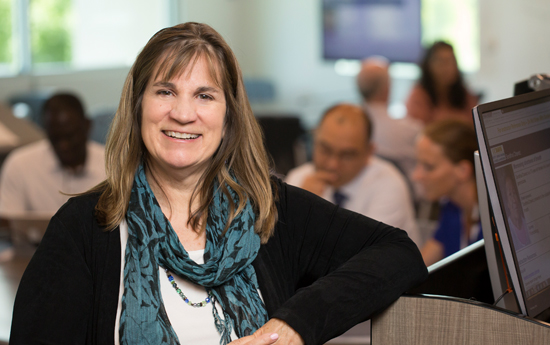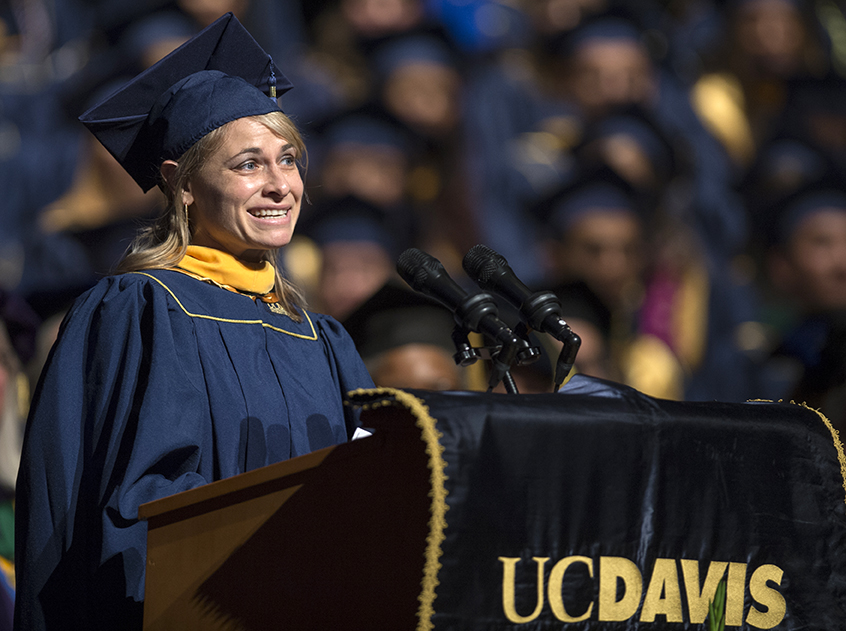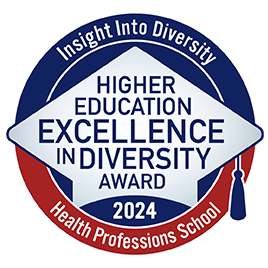Course Distinctions: Health Professions Educator Graduate Academic Certificate
Understanding learning before teaching

Elizabeth Rice, the associate dean for clinical education and programs, leads the Health Professions Educator Graduate Certificate Program at the Betty Irene Moore School of Nursing at UC Davis.
Teaching is a lot like running. Before you can run, you need to know how to walk. Before you can teach, you need to first understand how people learn. This is the vision behind the Health Professions Educator Graduate Academic Certificate Program at the Betty Irene Moore School of Nursing at UC Davis.
With the nation facing an ongoing nursing shortage along with a lack of nursing faculty, the need to prepare the next generation of health educators steadily grows. This graduate certificate program prepares students to serve as educators in the health professions, particularly in nursing. Graduates are eligible to apply for the Certification for Nurse Educators through the National League of Nursing.
“We’re moving away from the concept of ‘teaching others the way I was taught,’” said Elizabeth Rice, who leads the unique certificate program. “This program highlights the work that goes into being a good teacher.”
That begins with an understanding of how people learn.
“It’s like we’re pulling back the curtain on education. Not everyone signs up for this to be nurse faculty. Some sign up to learn more about education and explore if they want to move into that field,” she said. “Regardless, they will better understand themselves, their colleagues and any learner as a result of the classes. Past students said the courses even helped them talk with their kids and patients differently. That is success even though the hope is that graduates will become clinical instructors and academicians as well.”
Master’s leadership and doctoral students may apply for the certificate program after they complete at least one quarter of their studies. The series begins each spring and lasts for three quarters.

Krista Greaves, an alumna of the master’s leadership Class of 2017, said the skills and tools she learned in the graduate certificate program are applicable beyond traditional teaching roles.
Krista Greaves, a 2017 alumna of the Master of Science — Leadership program, was part of the first group to complete the program in 2017. She said she applied for the program because of the added skills she would learn.
“Most of us in the group have worked in the nursing profession, but not as educators,” Greaves explained. “But after completing this program, we realized these skills transfer to many roles beyond education.”
For example, Greaves said, in her work as a clinical nurse with UC Davis Medical Center, she applies her new knowledge to prepare nurses for patient education programs. “I incorporated what I learned into the work I do now,” she said. “I better understand that because different people learn differently, we need to adapt our patient education programs to reflect those needs.”
Once the participants have a good grasp of the science of learning, faculty then concentrate on the methods.
“We focus on the use of active learning activities, as well as technologies to support diverse students and changing classroom and clinical environments,” Rice said. “We spend a lot of time on lesson plans that emphasize specific learning styles and needs so graduates have a tool kit to draw on.”
Debbie Ward, the chairwoman of the Nursing Science and Health-Care Leadership Graduate Group who led the design of the certificate program, said that the young program is growing as she hoped.
“Graduate programs often focus only on discipline-specific practice. But in all our science and humanities fields, we have students who want preparation as educators. We want to meet that need,” she said.
Learn more about the Health Professions Educator Graduate Academic Certificate Program, including the coursework, qualifications to apply and benefits.





